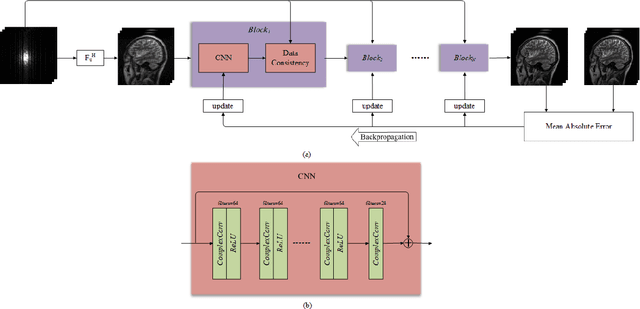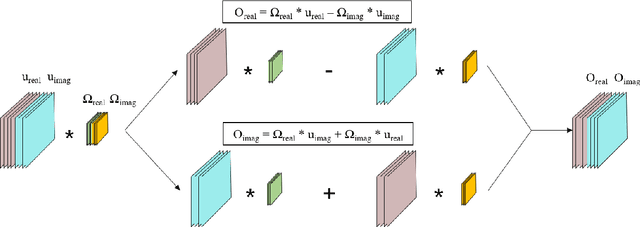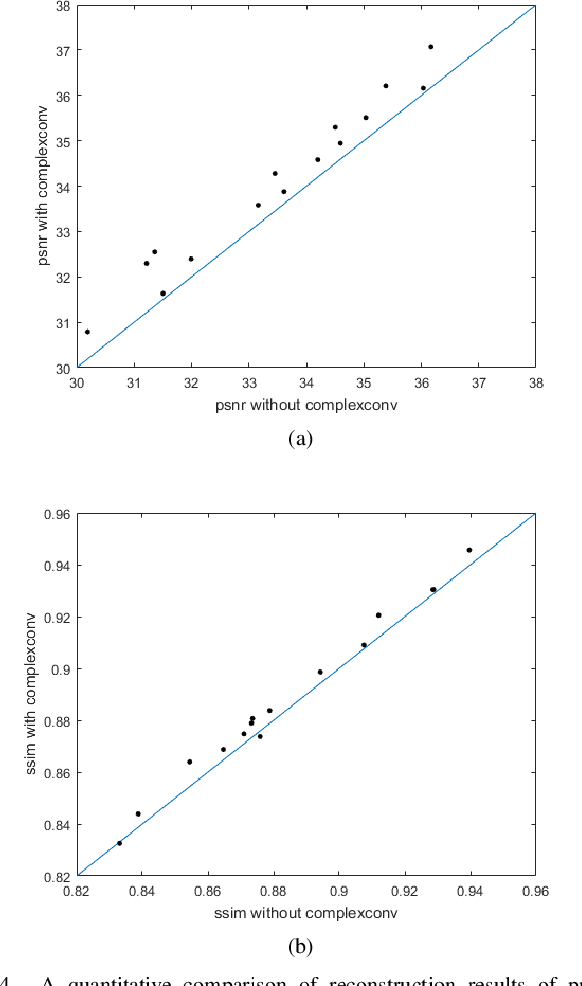Huitao Cheng
DeepcomplexMRI: Exploiting deep residual network for fast parallel MR imaging with complex convolution
Jul 29, 2019



Abstract:This paper proposes a multi-channel image reconstruction method, named DeepcomplexMRI, to accelerate parallel MR imaging with residual complex convolutional neural network. Different from most existing works which rely on the utilization of the coil sensitivities or prior information of predefined transforms, DeepcomplexMRI takes advantage of the availability of a large number of existing multi-channel groudtruth images and uses them as labeled data to train the deep residual convolutional neural network offline. In particular, a complex convolutional network is proposed to take into account the correlation between the real and imaginary parts of MR images. In addition, the k space data consistency is further enforced repeatedly in between layers of the network. The evaluations on in vivo datasets show that the proposed method has the capability to recover the desired multi-channel images. Its comparison with state-of-the-art method also demonstrates that the proposed method can reconstruct the desired MR images more accurately.
CRDN: Cascaded Residual Dense Networks for Dynamic MR Imaging with Edge-enhanced Loss Constraint
Jan 18, 2019



Abstract:Dynamic magnetic resonance (MR) imaging has generated great research interest, as it can provide both spatial and temporal information for clinical diagnosis. However, slow imaging speed or long scanning time is still one of the challenges for dynamic MR imaging. Most existing methods reconstruct Dynamic MR images from incomplete k-space data under the guidance of compressed sensing (CS) or low rank theory, which suffer from long iterative reconstruction time. Recently, deep learning has shown great potential in accelerating dynamic MR. Our previous work proposed a dynamic MR imaging method with both k-space and spatial prior knowledge integrated via multi-supervised network training. Nevertheless, there was still a certain degree of smooth in the reconstructed images at high acceleration factors. In this work, we propose cascaded residual dense networks for dynamic MR imaging with edge-enhance loss constraint, dubbed as CRDN. Specifically, the cascaded residual dense networks fully exploit the hierarchical features from all the convolutional layers with both local and global feature fusion. We further utilize the total variation (TV) loss function, which has the edge enhancement properties, for training the networks.
DIMENSION: Dynamic MR Imaging with Both K-space and Spatial Prior Knowledge Obtained via Multi-Supervised Network Training
Nov 06, 2018



Abstract:Dynamic MR image reconstruction from incomplete k-space data has generated great research interest due to its capability in reducing scan time. Nevertheless, the reconstruction problem is still challenging due to its ill-posed nature. Most existing methods either suffer from long iterative reconstruction time or explore limited prior knowledge. This paper proposes a dynamic MR imaging method with both k-space and spatial prior knowledge integrated via multi-supervised network training, dubbed as DIMENSION. Specifically, the DIMENSION architecture consists of a frequential prior network for updating the k-space with its network prediction and a spatial prior network for capturing image structures and details. Furthermore, a multisupervised network training technique is developed to constrain the frequency domain information and reconstruction results at different levels. The comparisons with classical k-t FOCUSS, k-t SLR, L+S and the state-of-the-art CNN-based method on in vivo datasets show our method can achieve improved reconstruction results in shorter time.
 Add to Chrome
Add to Chrome Add to Firefox
Add to Firefox Add to Edge
Add to Edge